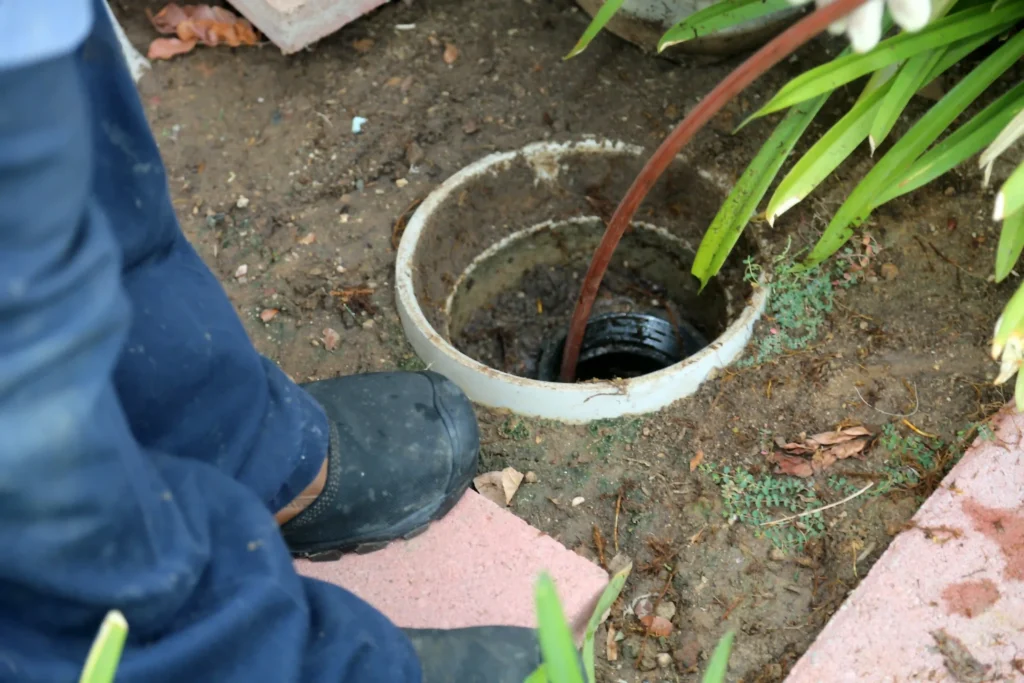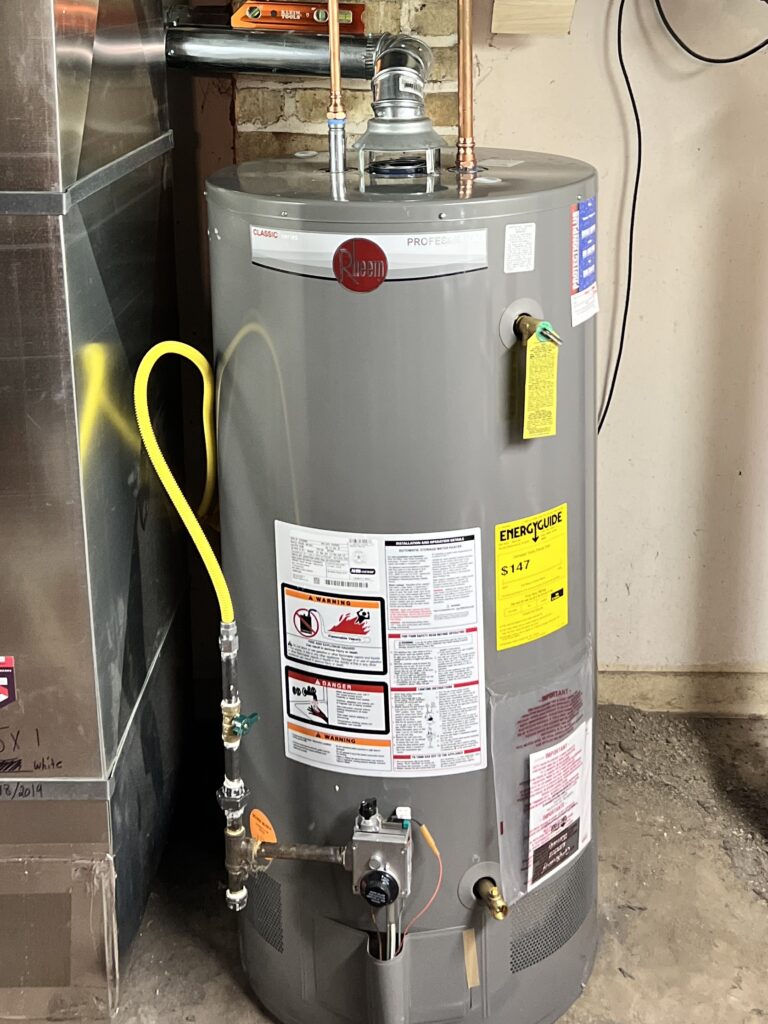

Blog
Residential Water Heaters: The Essential Guide
Everything About Buying, Troubleshooting, & Maintaining a Water Heater
Have you ever considered the essential role hot water plays in your life? Washing dishes, doing laundry and, most importantly, taking hot showers are all made better by your water heater.
Despite the importance of hot water to your daily routine, your water heater is an often overlooked consumer of energy. According to Energy.gov, heating water accounts for about 20% of your home's energy use.
Having the right water heater for your home helps ensure that you have hot water when you need it without a sky-high energy bill.
In this guide, you will learn everything you need to know about water heaters, including:
- The different types
- When it’s time for a replacement
- How to select and right-size a water heater for your home
- The importance of regular maintenance
- How to troubleshoot common water heater problems
Different Types of Water Heaters
There are several types of water heaters, but the two main categories are gas and electric.
Gas water heaters are powered by natural gas or propane. Some of the benefits of this type include the following:
- Depending on where you live and your utility rates, natural gas and propane costs are typically less than electricity costs, which can result in lower utility bills.
- During a power outage, a gas water heater will continue to operate and produce hot water.
- They heat water faster than electric water heaters.
The main drawbacks are that they tend to have a higher upfront cost than electric models and are less energy efficient, despite the lower operating costs.
The benefits of electric water heaters include the following:
- They are more energy-efficient and run cleaner than gas water heaters.
- The cost is lower upfront.
- Your home doesn’t need to be connected to a gas line.
Some of the cons that should be considered: Depending on your utility rates, electric water heaters can be more expensive to operate since electricity prices are usually higher than those of natural gas. They are also slower to heat water, and will not operate during a power outage.
Once you've decided between an electric and gas water heater, the next step is to determine which type of water heater will work best for your home and family. There are five primary options to choose from.
Standard Tank Water Heaters
These water heaters can be powered by gas or electricity. They contain a water tank between 40 and 55 gallons and store water at 120 degrees Fahrenheit until you are ready to use it. As hot water is used, the tank refills and the unit heats the fresh water.
Tankless Water Heaters
Also available in gas or electric, tankless water heaters take up much less space and provide hot water on demand. Instead of storing gallons of water and keeping it at 120 degrees, they heat up the water just in time for you to use it. Tankless water heaters usually have a higher upfront cost for the unit and installation, but can be more efficient and have a longer lifespan than standard tank water heaters.
Hybrid/Heat Pump Water Heaters
Do you use a heat pump to heat and cool your home? If the answer is yes, it can also be used to heat your water. A heat-pump water heater uses electric energy to pull heat from the surrounding air and transfers it, at a higher temperature, to heat water in a storage tank. You can also add a device called a desuperheater to a geothermal heat pump to generate hot water.
Troubleshooting Common Water Heater Problems
Most of the time, your water heater does its work in the background. But if something goes wrong, you’ll notice it as soon as you step into that cold shower. When that happens, there are some things you can do to try and identify the problem on your own.
Here are some of the most common water heater problems and some troubleshooting tips.
The water is too hot, or not hot enough
If the water is too hot, your thermostat could be set too high. Consult your owners’ manual and re-adjust the temperature to 120 degrees.
If the water is heating, but not enough, you could have an undersized water heater, crossed hot and cold connections, or a faulty heating element or thermostat. Start by turning off your water supply and turning on a hot water faucet. If the water runs, that means your hot and cold connections are crossed. If this is not the case, you’ll want to have a professional check on the heating elements and thermostat.
If the water isn’t heating up at all, check to make sure the water heater has power. Check your power switches to make sure they are on; then reset your circuit breaker and replace any blown fuses. Finally, check the thermostat to make sure it is functional.
Water is leaking
If water is leaking or you find a puddle beneath your water heater, start by checking for loose plumbing connections and tightening them. Then check and tighten the heating element bolts. If the heating element is still leaking, call a professional to replace the gasket. If your water heater is still leaking, check the tank for corrosion. This could mean it's time for a new unit.
Water is discolored
This is often the result of corrosion on your tank’s liner caused by a failing anode rod. You can replace the rod on your own or ask a professional to do it for you. If this doesn’t solve the problem, it may be time to replace your water heater.
Heater is making odd noises
Odd noises coming from your water heater can be caused by sediment buildup in the tank. Try flushing your water heater. You may even be able to complete this task on your own following a fairly simple process.
Read more: Time For a Water Heater Replacement?
How To Choose the Right Water Heater: Buying Tips
If you’ve already tried the troubleshooting tips above but your unit is still leaking water or making odd noises or not producing enough hot water, then it may be time to buy a new water heater. When selecting a new water heater for your home, consider the following criteria.
Fuel and Water Heater Type
You will first need to determine what fuel types are available for your home. As I discussed at the beginning of the guide, if you want a gas water heater but aren’t connected to a gas line, you will need to use propane. Otherwise, you may opt for an electric model. You’ll also need to decide if you want a tank or tankless water heater, or if you want to utilize a heat pump or solar energy.
Size
Not sure what size of water heater you need? Calculate your household’s peak-hour hot water demand, and use that to determine what size to purchase. To do this, list the number of hot water devices you expect to use at any one time. Then add up their flow rates (gallons per minute). This is the desired flow rate you'll want.
To measure the flow rate of a hot water device, see how long it takes to fill a one-gallon container with water. Then divide 60 by the number of seconds it took to fill the container and this will give you your gallons-per-minute flow rate.
Efficiency
To maximize energy and operating cost savings, look for an energy-efficient water heater. Both the type of water heater and the fuel it uses impact the overall system efficiency. Your water heater dealer and service provider can educate you on your options and help you choose the most efficient and cost-effective system for your home.
Cost
As you shop for water heaters, it is important to not only look at the purchase price but to consider the costs of installation, operation and maintenance. Knowing the total cost of ownership (TCO) will help you determine if buying a more efficient system will provide a TCO that makes the upfront cost worth the investment.
Routine Maintenance Is Important for Water Heaters
As with any equipment, water heaters require regular maintenance to function properly and to extend their life. The average lifespan of a water heater is 10—15 years, but with regular maintenance it could last even longer.
As a homeowner, you can do a visual inspection that includes:
- Checking your water heater to ensure there’s no sitting water underneath it.
- Checking the water heater’s vent for rust and scaling.
You should have your water heater inspected by a professional at least once a year to make sure it’s functioning properly. Your service technician will clean and inspect the following components of your water heater:
- The burners
- A safety device known as the relief valve
- The pilot light
- The vents
Look for a local HVAC company that provides annual maintenance programs that include inspection of your water heater.
Read more: Keep the Hot Water Running With These Simple Maintenance Tips
Bell Brothers for Your Water Heater Needs
Whether you need your current water heater maintained or you need a replacement, we have you covered. Our specially trained technicians can service all brands of water heaters.
When it’s time for a water heater replacement, we’ll find and install the right choice for your needs and budget. And when you join the Comfort Club at the Performance or Premium level, you will receive annual water heater maintenance in addition to heating and cooling service.








